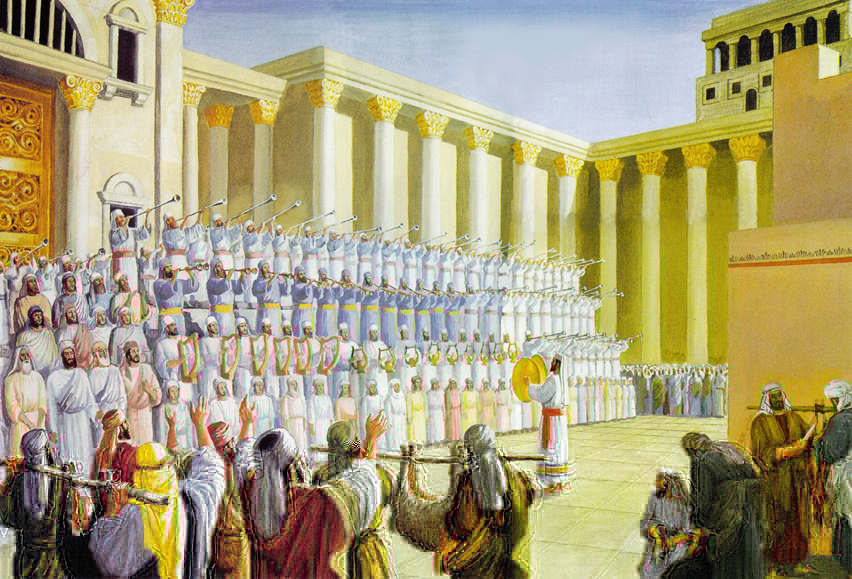 "Why were the Levites selected to sing in the Temple? Because the name Levi means cleaving.
The soul of him who heard their singing at once cleaved to God." (Zohar 2:19a)
"Why were the Levites selected to sing in the Temple? Because the name Levi means cleaving.
The soul of him who heard their singing at once cleaved to God." (Zohar 2:19a)
 "Why were the Levites selected to sing in the Temple? Because the name Levi means cleaving.
The soul of him who heard their singing at once cleaved to God." (Zohar 2:19a)
"Why were the Levites selected to sing in the Temple? Because the name Levi means cleaving.
The soul of him who heard their singing at once cleaved to God." (Zohar 2:19a)
The precept of the Levite's Service at the Santuary:
Levitical Song in the Holy Temple of jerusalem
The deciphering of the musical signs in the Bible, the Teamim:
1- According to Suzanne Haik-Vantoura
THE PRECEPT OF THE LEVITE'S SERVICE AT THE SANCTUARY
That the Levites should serve at the Sanctuary, to be gate
keepers and singers over the offerings every day: for it is stated, And the Levite,
he shall do the service of the tent of meeting (Numbers 18: 23). In the language of
the Midrash Sifre (1): I might understand that if he wished he might serve,
and if he did not wish to, he need not serve; hence Scripture states, And the Levite,
he shall do the service - even against his will. In other words, this matter
is obligatory, something imposed on him as compulsory.
At the root of the precept lies the reason that it is to the glory of the [Divine] King
and the place that there should be certain people there from the certain,
known tribe, permanently appointed to minister, and an outsider should not enter
among them for the service - in keeping with [the practice of] royalty on earth:
They appoint known honorable men, that all the work of the palace should be
done by them. For it is not fitting for a king that he should change the
ministering servants before him every day, and that all should thus make use
of the crown of ministry to the king. This is something quite clear.
Among the laws of the precept there is what the Sages of blessed memory taught:3 that if
a Levite accepted every religious duty of the Levites except for one thing, he is not
accepted until he adopts them all. Their service was that they would guard the Sanctuary,
as we wrote in this sidrah (§ 388). Some of them were gatekeepers, to open and close the
gates of the Sanctuary. But their principal service was to chant over offerings.4 Now,
they would utter song over none but the 'olah (burnt) offerings of the whole community
which were obligatory, and over the sh'lamim (peace-offerings) of Shavu'oth during the
pouring of the wine.S But for voluntary 'olah offerings that the whole community would
present as the altar's "summer fruit offerings," and so when libations (drink-offerings)
[of wine] were brought by themselves, song would not be uttered over them.6
A Levite in grief' was permitted to serve and chant.8 There would never be fewer
than twelve Levites standing on the platform to utter song over an offering; and
more could be added without limit.(9) The song that the Levites would utter was by
mouth; for principally, song is by mouth.lo But others would be standing there,
who played on musical instruments: some were Levites, and some were Israelites
of distinguished lineage who were acceptable to intermarry with the kohanim.
For none might ever go up on the platform but a person of distinguished descent.(10)
There were never fewer than nine lutes, and more might be added without limit.
Of cymbals, though, there was but one [set]. (11)
It would seem that the reason is that the sound of cymbals is loud,
and somewhat agitating; if there were many, the other musical instruments
that were there would not be heard, and certainly not the chant of
the mouth. As for the flutes on which they played, theirs was a reed flute,
because its sound is sweet.(12) On twelve days of the year, the flute would
play before the altar; 12 and it could thrust aside the Sabbath,13 because it
was part of the service of the offering, and the offering could thrust
aside the Sabbath. (14)
A Levite would not enter to serve until he had been taught for five years,
as the Sages of blessed memory inferred from Scripture; (15) and
hence they (of blessed memory) said that if a student sees no good sign
[of progress and success] in his study for five years,16 he will never
see any.1' He was never to enter to serve until he was an adult:9 for it is stated,
every man to his service (Numbers 4: 49). A Levite would not be disqualified to
serve by years (age) or by disfiguring blemishes, but only by the deterioration
of the voice-for instance, the old, whose voice becomes spoiled with age.(18)
As for the verse in the Torah, and from the age of fifty years he shall
return from the service of the work (Numbers 8: 25), this applied only at
the time that they would carry the mishkan (Tabernacle) from place to place.
Yet even in the older years, when one's voice was deteriorated, he was
not disqualified from guarding the Sanctuary and locking doors.18
All this, with the rest of its details, is explained well in various places
in the tractates Tamid and Middoth; also in chapter 2 of 'Arachin some of this
subject is clarified. I have been a bit lengthy about this for you,
my son, for the Sanctuary will soon be rebuilt, and you will need it-amen, may the Eternal Lord so accomplish it.
It applies at the time the Temple exists, for the Levites.
If a Levite transgressed this and did not chant over an offering on
his day that was set for him - for days were determined for them according
to the division of the watches19 - but rather kept silent,
he would thus disobey this positive precept, and his punishment would
be very great, for he would seem like one who does not desire the honor
of service to the Eternal Lord. Therefore God would deprive him of honor.
But as for anyone of the Levites who delighted in the service of his Creator,
life, peace, blessing and honor would be with him.
RAMBAM MISHNEH TORAH - The book of Temple Service, (vessels and ministers).
2. Their service was that they guard the Sanctuary; that some of them act
as gate-keepers to open the gates of the Sanctuary and to shut its doors;
and that some of them be singers to chant over the offerings every day, as
it is said: then he shall minister ill the name of the Lord his God, as all
his brethren the Levites do (Deut. 18:7). Now which ministry was it that was
performed in the name of the Lord? You must say it was that of chanting.
When did the Levites chant? At all burnt offerings of the community which were
obligatory and at the peace offerings of Pentecost during the libation of wine.
But they did not chant at voluntary burnt offerings which the community offered
when the Altar was idle or at the drink -offerings which were offered by themselves.
3. A Levite who was in mourning was permitted to minister and chant.
There might never be less than twelve Levites standing on the Platform every day
to chant over the offering, but their number could be increased without limit.
Their chanting was vocal, without instrument, for the essential song of the
Temple service was vocal.
There were others standing there playing musical instruments; some of them
Levites and some of them (lay) Israelites of pure lineage who were eligible
to marry into priestly families, for only a person of pure lineage was permitted to
rise to the Platform. Those who played the musical instruments were not counted in
the required number of twelve.
4. Upon what instruments did they play? Upon lyres, flutes, harps, trumpets,
and cymbals. There might never be less than two lyres, nor more than six;
never less than two flutes, nor more than twelve;. never less than two trumpets,
nor more than one hundred and twenty; never less than nine harps, but their number
could be increased without limit. There was only one cymbal.
5. On all Festival Days and on New Moon Days the priests would blow on the trumpets
at the time of the offering and the Levites would chant; for it is said: Also in
the day of your gladness, and in your appointed seasons, and in your new moons,
ye shall blow with the trumpets (Num. 10:10).
The trumpet was made of a bar of silver. If it was made of pieces of silver,
it was fit; but if made of any other metal, it was unfit. The pipe of the flutes
upon which they played was a reed, for its sound is sweet. A song would always end
with a lone flute, for it makes a pleasant finale.
6. On twelve days during the year the flute would be sounded in front of the
Altar: at the slaughtering of the first Passover offering; at the slaughtering
of the second Passover offering; on the first Festival Day of Passover; on the
Festival Day of Pente. cost; and on the eight days of Tabernacles. This playing of the
flute superseded the Sabbath; for this was a flute that accompanied the offering,
which was deemed Temple service and therefore superseded the Sabbath.
7. A Levite did not enter the Court to minister until he had been trained for five years.
For one verse says: This is that which pertaineth unto the Levites;
from twenty and five years old and upward they shall go in to perform
tIle service (Num. 8:24), and another verse says: from thirty years old and
upward (ibid. 4:3). Whence the dilIerence in years? It refers to the five years
devoted to training. A Levite did not enter to minister until he had grown
up and come of age; for it is said: every man to his service (ibid. 4:19).
8. That which the Law says concerning the Levites, and from the age of fifty years
they shall return from the service of the work (Num. 8:25), pertained only to the
time when the Sanctuary was carried from one place to another and was not a command
intended to remain in force at all times. In the latter days the Levite was
disqualified neither by reason of old age nor by reason of blemishes. Only if his
voice was impaired because of old age did he become disqualified for service in the
Sanctuary. It appears to me that he was disqualified only from chanting, but he might
serve as one of the gate-keepers.
9. Samuel the Seer and David the King divided the Levites into twenty-four divisions.
Each division served for one week. The chief of a division would divide the
men of his division into subdivisions (fathers' houses: Num. 3 :15), and
only certain men would serve on each day of the week. The chiefs of the
subdivisions would assign the tasks to those serving on their particular
day, each man to his respective duty.
All the Levites were admonished not to minister at the Altar;
as it is said: only they shall not come nigh unto the holy furniture
and unto the altar, that they die not (Num. 18 :3). They shall not come
nigh enjoins them only from ministering, but they were permitted to touch the Altar
10. Just as the Levites were admonished not to perform the service of priests,
so were the priests admonished not to perform the service of Levites; for it
is said: neither they, nor ye (ibid.).
Similarly, each Levite was admonished not to perform a service assigned
to another Levite; that is, a singer might not assist a gate-keeper,
nor might a gate-keeper assist a singer. For it is said: every man to his
service and to his burden (Num. 4:19).
11. If a Levite performed a service of priests or if a Levite assisted
in a duty not assigned to him, he incurred the penalty of death by Divine
judgment; for it is said: that they die not (Num. 18:3). But if a priest
performed a service of a Levite, he did not incur the penalty of death,
but he transgressed a negative commandment.
So was it likewise explained in chapter 2 of the tractate 'Arachin (11a)
that oral music was never to be uttered by anyone other than a Levite.
This precept was reiterated in different phrasing in the Torah:
for it is stated,
then he shall minister in the name of the Lord his God (Deuteronomy 18: 7).
And it was stated there in the tractate 'Arachin (11 a):
What is a ministry that is in the name of the Lord? - we can but say: it is song (2).
1. Sifre, Numbers § 119.
2. Because the verse means more literally, "with the name of the Lord," and in
their singing the Levites pronounced His holy name
(Rashi, TB 'Arachin 11a, s.v. b 'shem). From the beginning to here
is based on ShM positive precept § 23.
3. TB B'choroth JOb.
4. I.e. while certain offerings (detailed below) were being sacrificed and
brought to the altar.
5. TB 'Arachin Ila-b.
6. Ibid. 12a; MT hilchot{, k'/e ha-mikdash iii 2. The Hebrew for "summer-fruit
offerings", ka-yitz, means literally "summer"; it'is understood here, however, as the
sweet fruits that ripen in the summer, as in 11 Samuel 16: 1-2. By association it takes on the sense of dessert, sweet food after the main course; and by further association
it denotes here volumary offerings brought on the altar when it would otherwise be
idle (sacritices being regarded symbolically as Divine "food" consumed by the
altar); sce e.g. Rashi, TB Sh'vu'oth 12b top, s.v. ka-yitz:
7. Over the death of a near kin, before the burial.
8. Sifra, sh 'mini, pm:k 2, 9.
9. TB 'Arachin l3b.
10. Ibid. Ila. (The paragraph is based on MT ibid. J.)
11. TB 'Arachin 13a.
12. Ibid. lOa.
13. Although playing an instrument on the Sabbath is generally forbidden by a
rule of the Sages.
14. The paragraph is based on MT hilchoth k'[e ha-mikdash iii 4-6.
15. Because Numbers 4: 3 states that a Levite began his service at thirty, while
Numbers 8: 24 states that they were to enter for service at twenty-five; hence a
fiveyear training period is inferred; TB l:Iullin 24a.
16. Because he forgets what he has learned (Rashi ibid. s. v. shelo' ra 'ah).
17. Since this is all the time Scripture allotted a Levite for training; TB ibid.
18. TB l;:Iullin 24a. (The paragraph is based on MT ibid. 7-8.)
19. Cf MT ibid. 9.
1. The descendants of Levi were wholly separated (from the community of Israel)
for the service of the Sanctuary, as it is said: At that time the Lord sepamted
the tribe of Levi (Deut. 10:8). It was a positive commandment for the Levites to
be free and ready for the service of the Sanctuary, whether they so desired or not;
as it is said: But the Levites alone shall do the service of the tent
of meeting (Num. 18:23). A Levite who undertook all the duties assigned to
the Levites except one was not accepted until he undertook all of them.
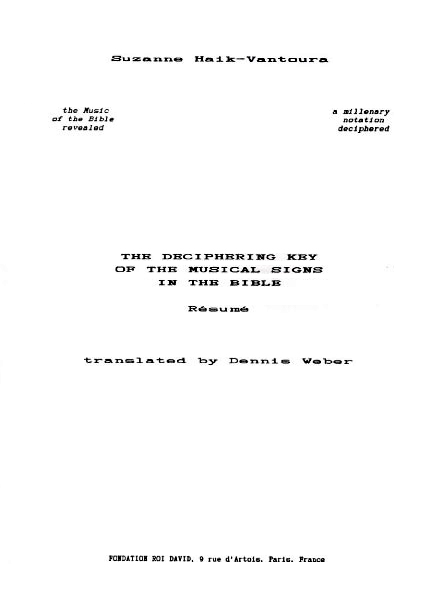
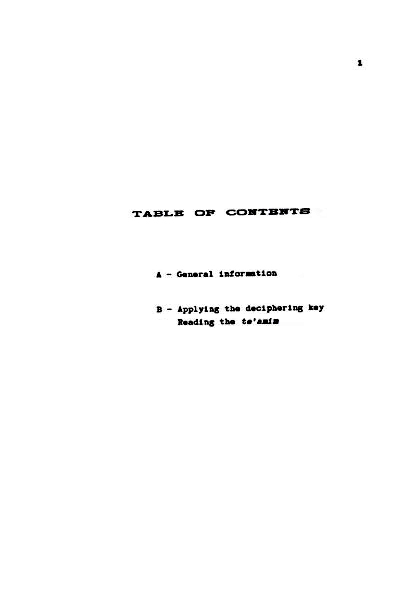
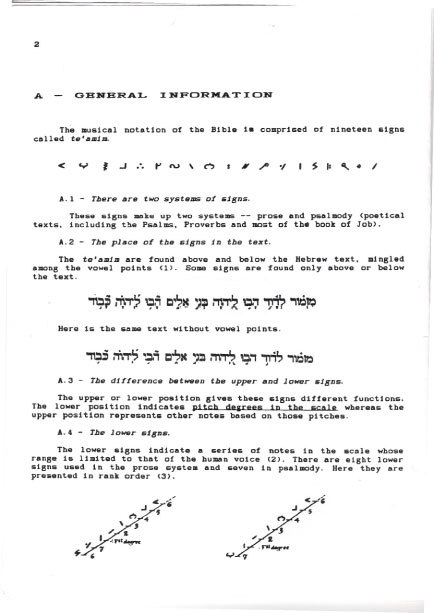
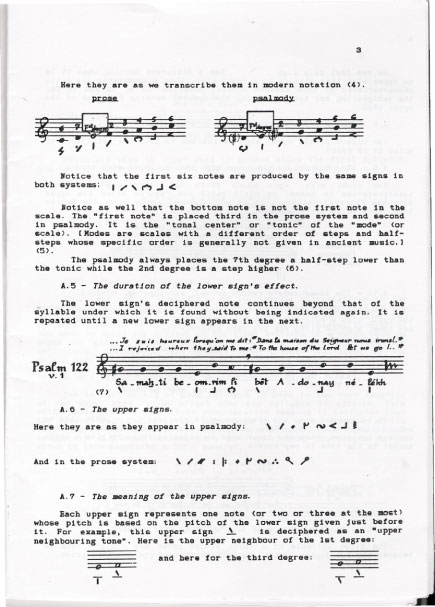
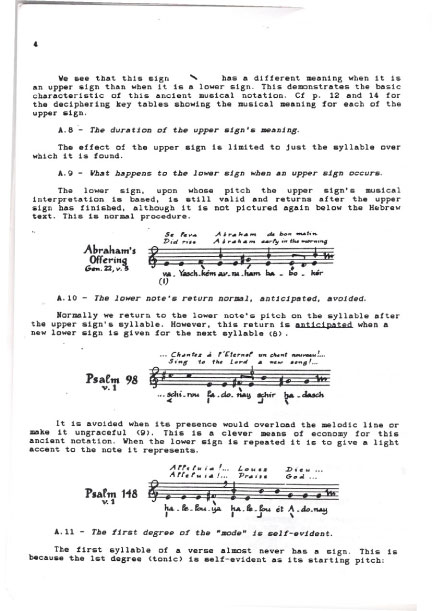
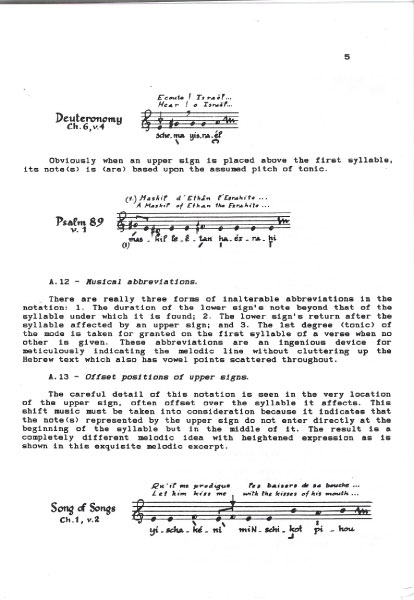
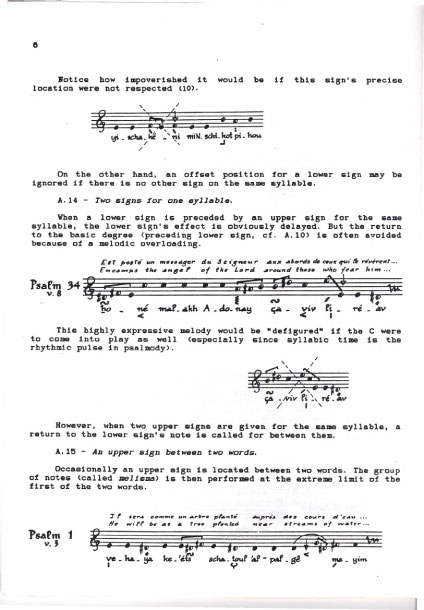
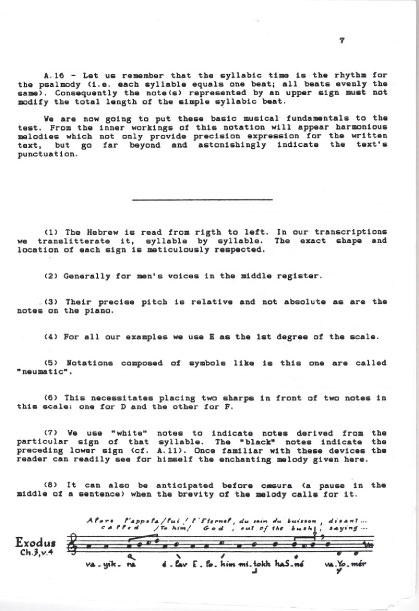
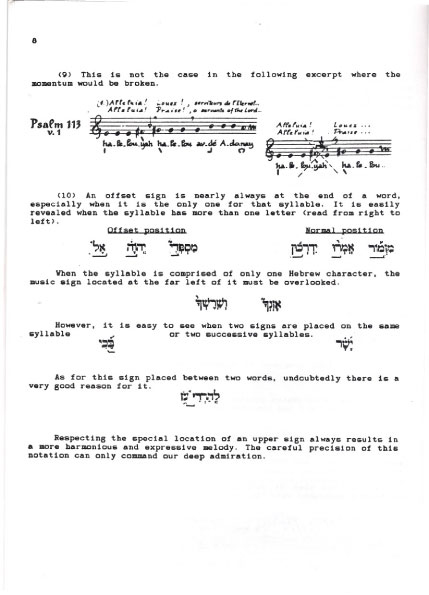
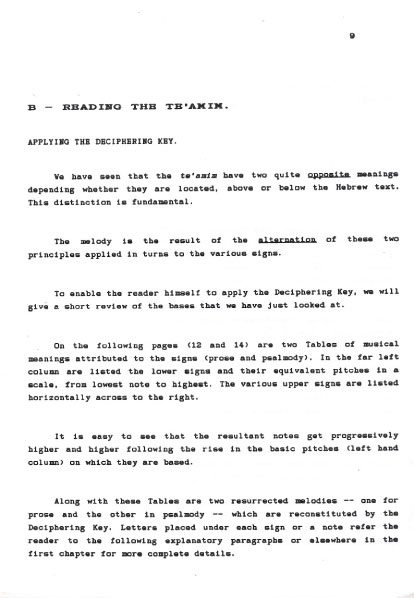
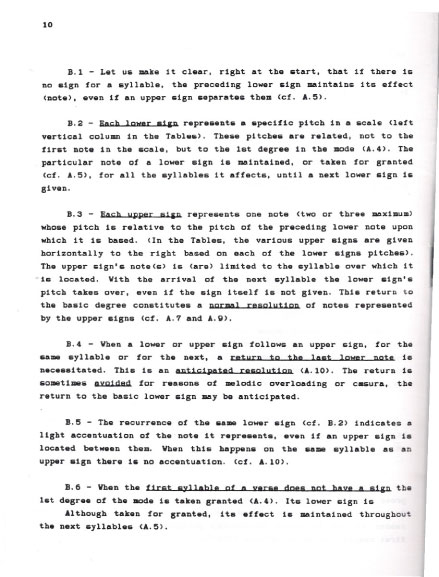
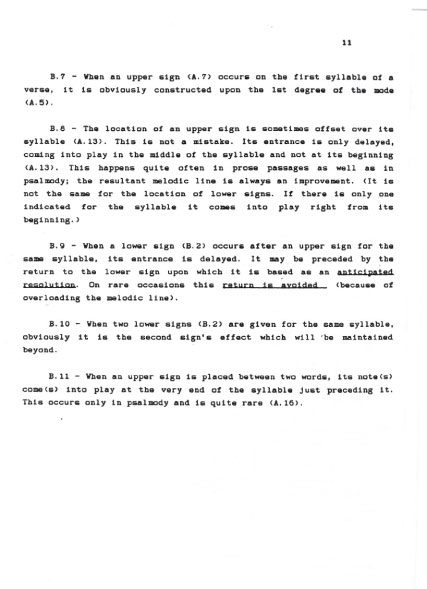
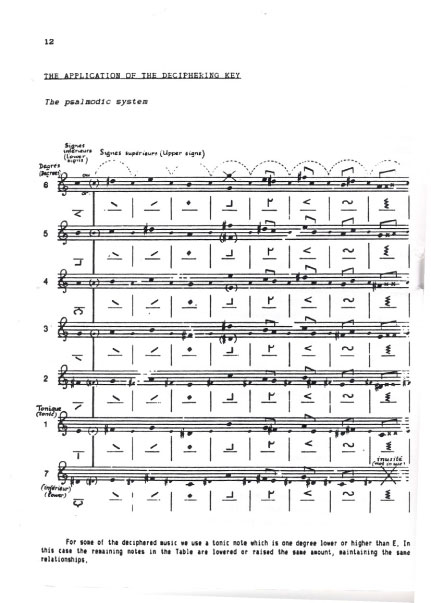
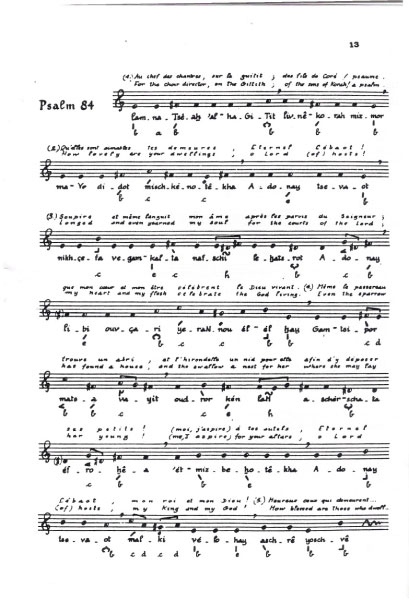
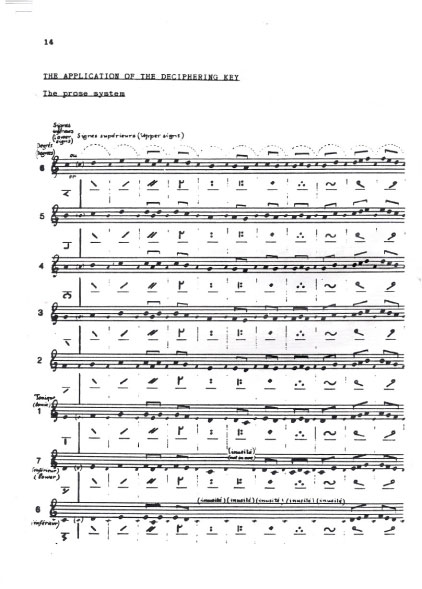
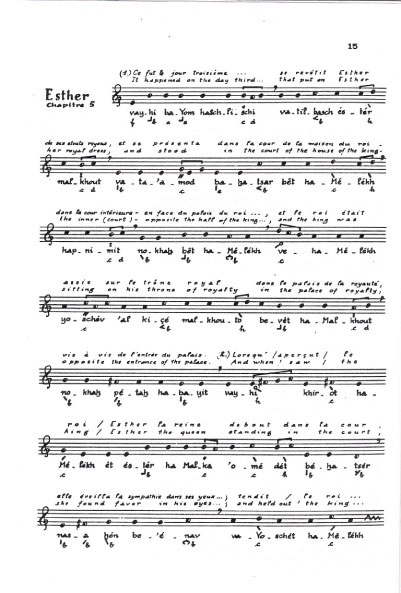
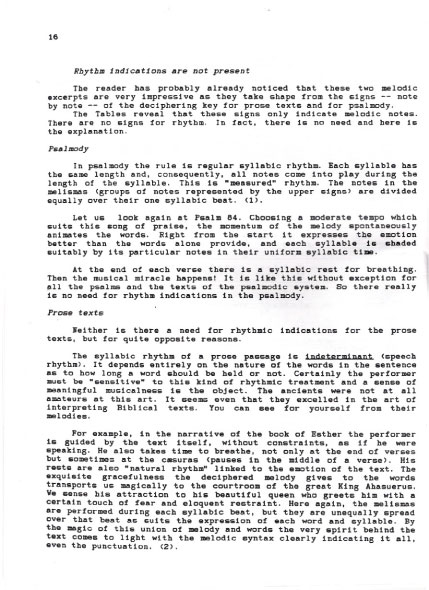
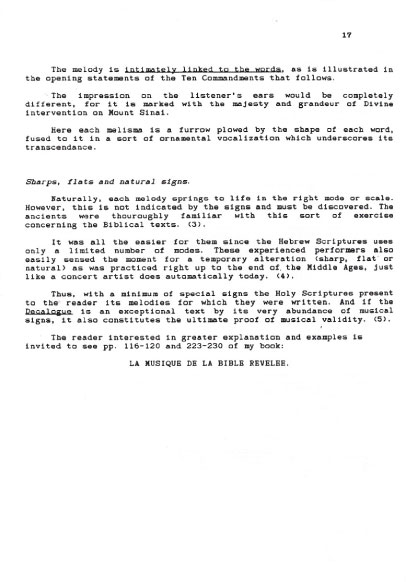
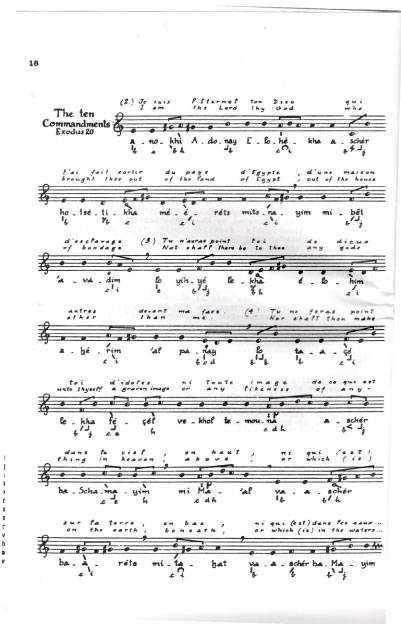
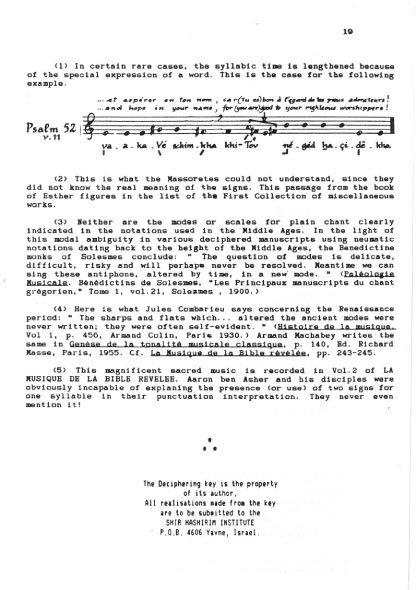
 Return to top
Return to top